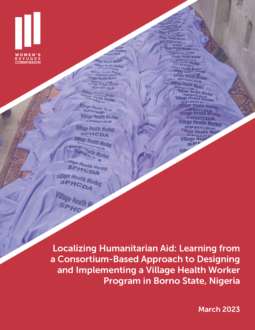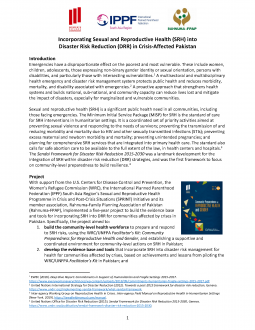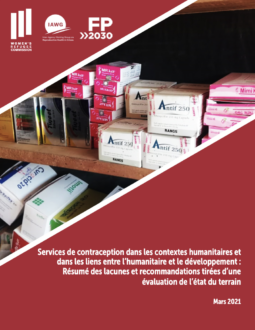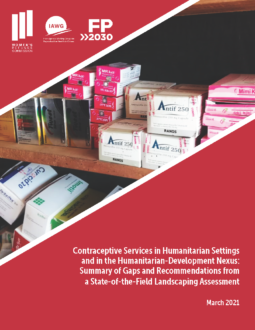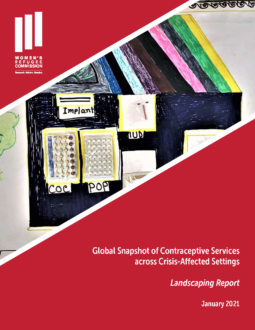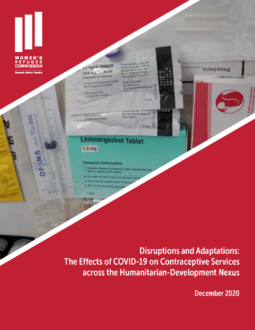
Disruptions and Adaptations: The Effects of COVID-19 on Contraceptive Services across the Humanitarian-Development Nexus
PublishedIn 2020, the Women’s Refugee Commission conducted a series of key informant interviews with diverse stakeholders to document the impact of the COVID-19 pandemic on contraceptive service delivery, service delivery innovations and adaptations to continue providing contraception during the pandemic, and barriers and facilitators to the provision of contraceptive and sexual and reproductive health services in COVID-19 preparedness and response in settings across the humanitarian-development nexus.
This series of interviews is one component of a mixed-method landscaping assessment, which includes a literature review, a global coverage survey of contraceptive service delivery in humanitarian settings (coverage survey), two series of key informant interviews with stakeholders across the humanitarian development nexus, and three case studies in diverse humanitarian settings—Cox’s Bazar, Bangladesh, Borno State, Nigeria, and Cyclone Idai-affected Mozambique.
Full Report
Additional Research
- Contraceptive Services in Humanitarian Settings and in the Humanitarian-Development Nexus, Including during the COVID-19 Pandemic – A Global Landscaping Assessment Report Summary (Two-Pager)
- Global Snapshot of Contraceptive Services across Crisis-Affected Settings
- Opportunities and Challenges for Contraceptive Service Delivery in Cyclone Idai-Affected Areas of Mozambique
- Gap between Supply and Demand for Contraceptive Services in Northeast Nigeria
- A Clear Case for Need and Demand: Accessing Contraceptive Services for Rohingya Women and Girls in Cox’s Bazar


